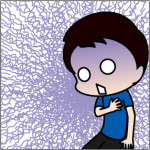Hot Weather Safety Tips
AND THE HEAT IS ON…….
In my last post I discussed the problems that insects bring into our lives each spring and summer. As we move forward into the warmer months another health concern we may be confronted with is the heat and humidity in many areas of the country. It’s so nice to get outside and get some exercise, do some yard work, play some sports or just relax on the patio or at the beach and soak in the sunshine and fresh air. It can be easy to become overheated without even realizing it sometimes so I thought it would be useful to offer some tips on staying safe and healthy as the temperatures begin to rise.
Did you know that even being out for short periods of time in high temperatures can cause serious health problems? Know your limits in the heat and monitor your activities and time in the sun to lower your risk for heat-related illnesses.
- If you’re outside in hot weather for most of the day, you’ll need to make an effort to drink more fluids.
- Avoid drinking liquids that contain alcohol or large amounts of sugar, especially in the heat.
- Take breaks often. Try to rest in shaded areas so that your body’s thermostat will have a chance to recover. Stop working if you experience breathlessness or muscle soreness.
- Pay attention to signs of heat-related illness, including extremely high body temperature, headache, rapid pulse, dizziness, nausea, confusion or unconsciousness.

- Watch people who are at higher risk for heat related illness, including infants and children up to four years of age; people 65 years of age or older; people who are overweight; people who push themselves too hard during work or exercise; and people who are physically ill or who take certain medications (i.e. for depression, insomnia, or poor circulation).
- Eat healthy food to help keep you energized.
- Infants, children, those over 65 and people with chronic medical conditions are more prone to heat stress.
- Air conditioning is the number one protective factor against heal-related illness and death. During conditions of extreme heat, spend time in locations with air-conditioning such as shopping malls, public libraries, or public health sponsored heat relief shelters in your area.
- Get informed. Listen to local news and weather channels or contact your local public health department during extreme heat conditions for health and safety updates.
- Drink cool, nonalcoholic beverages and increase your fluid intake, regardless of your activity level.
Summertime activity, whether on the playing field or the construction site, must be balanced with measures that aid the body’s cooling mechanisms and prevent heat-related illness. To protect your health when temperatures are extremely high, remember to keep cool and use common sense.
Conditions of extreme heat are defined as temperatures that are substantially hotter and/or more humid than average for a location at that time of year. Humid or muggy conditions, which add to the discomfort of high temperatures, occur when a “dome” of high atmospheric pressure traps hazy, damp air near the ground. Extremely dry and hot conditions can provoke dust storms and low visibility. Drought occurs when a long period passes without substantial rainfall. A heat wave combined with a drought is a very dangerous situation. 
Some final tips:
- Drink plenty of fluids regardless of your activity level; don’t wait until you feel thirsty to drink. During heavy exercise in a hot environment, drink two to four glasses (16 – 32 oz.) of cool fluids each hour.
- If your doctor generally limits the amount of fluid you drink or has you on water pills, ask how much you should drink while the weather is hot.
- Don’t drink liquids that contain alcohol, or large amounts of sugar – these actually cause you to lose more body fluid.
- Avoid very cold drinks because they can cause stomach cramps.
That’s going to wrap things up for this post, next time we will look into how the summer heat affects the elderly specifically.
To your good health,
Barb

![disasters_extheat_prevention01_210px[1]](https://healthcareassociates.net/wp-content/uploads/2015/05/disasters_extheat_prevention01_210px1-150x150.jpg)